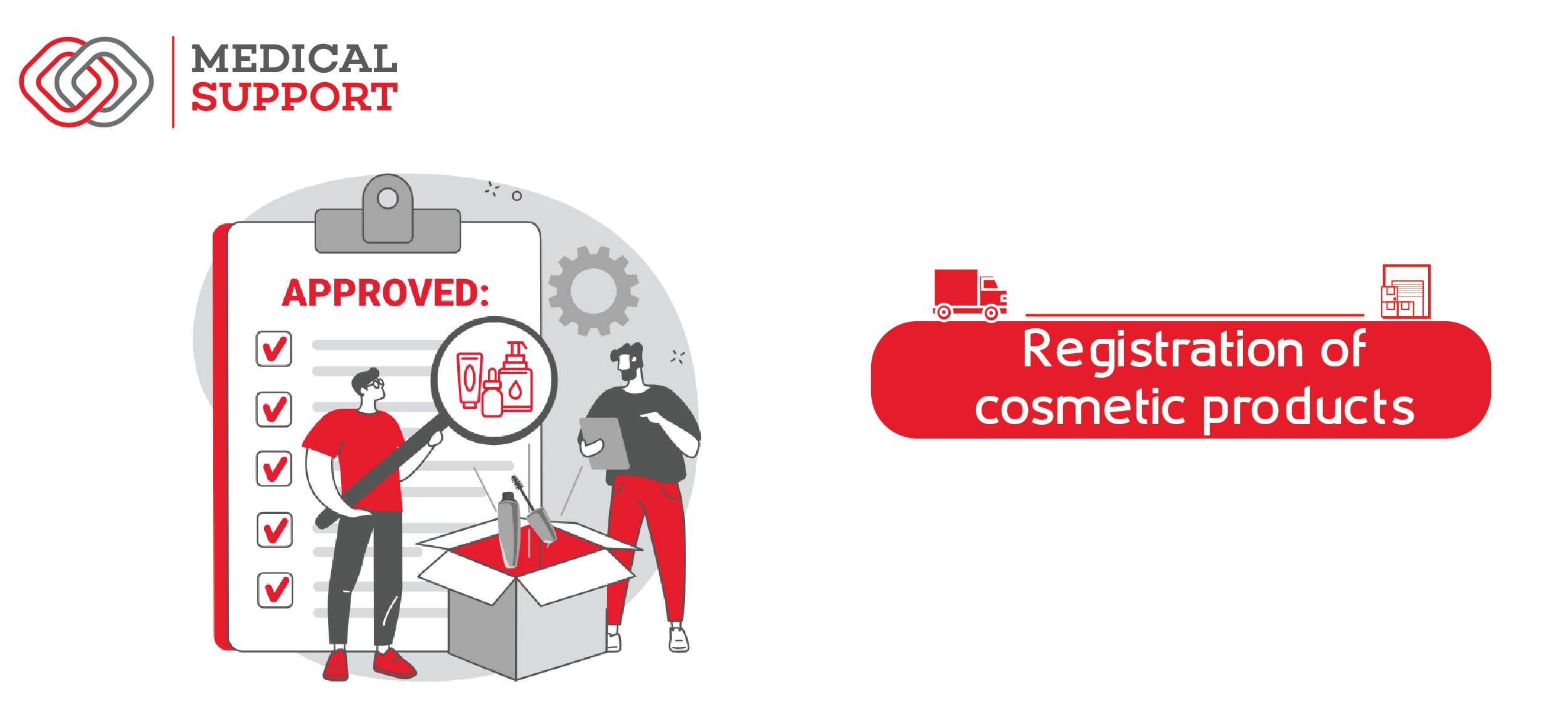The registration of cosmetic products in Saudi Arabia is the responsibility of the Saudi Food and Drug Authority, The SFDA regulates Cosmetic Product Registration to ensure the safety and quality of cosmetic products and their compliance with national and international standards.
Any company looking to manufacture, import, or distribute cosmetics in Saudi Arabia must adhere to SFDA regulations and register their products through the eCosma system.
This guide provides a step-by-step overview of the Cosmetic product registration process, By following these guidelines, businesses can ensure a smooth registration process and successful market entry in Saudi Arabia.
Understanding Cosmetic Product Registration
According to the Saudi Food and Drug Authority (SFDA), cosmetic products are formulations containing one or more substances intended for external use on various parts of the human body, including the skin, hair, nails, lips, and external genital areas, as well as the teeth and mucous membranes of the oral cavity. Their purpose is to cleanse, perfume, protect, maintain in good condition, enhance appearance, or alter body odor.
In accordance with the Law of Cosmetic Products, no cosmetic product may be imported or traded in Saudi Arabia unless it is listed in the Electronic System for Listing Cosmetic Products.
This listing system is designed to regulate the import, trade, and marketing of cosmetic products in Saudi Arabia. Additionally, it aims to establish a comprehensive database of all marketed cosmetic products, including information on their importers and local manufacturers.
SFDA Regulations and Standards
The Saudi Food and Drug Authority (SFDA) oversees the registration of cosmetic products to ensure their safety, quality, and compliance with national and international standards.
SFDA cosmetic product requirements are:
- All cosmetic products must be listed in the Electronic System for Listing Cosmetic Products (eCosma) before being imported or marketed.
- Products must meet GCC and international safety guidelines, ensuring they are free from banned or restricted substances.
- Labels must include product name, ingredients, manufacturer details, batch number, and expiration date in both Arabic and English.
- Companies are required to report adverse effects, product recalls, and safety concerns to the SFDA.
By following these regulations, the Cosmetic product registration process can be done smoothly.
Types of Cosmetic Products Subject to Registration
The Saudi Food and Drug Authority (SFDA) requires the registration of all cosmetic products before they can be imported, manufactured, or sold in Saudi Arabia. These products include, but are not limited to:
- Skincare products – Moisturizers, sunscreens, anti-aging creams, and facial cleansers.
- Haircare products – Shampoos, conditioners, hair dyes, and styling products.
- Makeup and beauty products – Foundations, lipsticks, mascaras, and nail polishes.
- Fragrances and perfumes – Body sprays, colognes, and essential oils.
- Personal hygiene products – Deodorants, soaps, toothpaste, and intimate care products.
Cosmetic product compliance in Saudi Arabia is required including ingredient safety, labeling requirements, and good manufacturing practices (GMP), before they can be marketed in Saudi Arabia.
Step-by-Step Registration Process
To register cosmetic products in Saudi Arabia, the following steps must be followed:
Verify Product Classification
Before starting the registration process, manufacturers or cosmetic brands must confirm that their products fall under the SFDA’s definition of cosmetics. This involves identifying the product category, such as skincare, makeup, beauty items, or other specific cosmetic products.
Submit Product Details and Documentation
Through the Faseh SFDA system, manufacturers must provide comprehensive product details, including descriptions, ingredient composition, labeling, and the country of origin. Required documents may include safety data sheets and certificates demonstrating compliance with SFDA regulations, manufacturers must provide comprehensive product details, Through the Faseh SFDA system
Ensure Ingredient Compliance
It is essential to verify that all ingredients comply with SFDA regulations. The Faseh SFDA system offers an ingredient-checking tool to confirm that the product does not contain banned or harmful substances, ensuring its safety for consumers.
Provide Samples for Testing (If Required)
In some cases, the SFDA may request physical samples for laboratory testing to confirm product safety and effectiveness. If the product successfully passes these tests, it advances to the approval stage.
Approval and Market Clearance
Once approval is granted, manufacturers can complete the registration process and proceed with the import and distribution of their cosmetic products in Saudi Arabia. SFDA clearance is necessary before officially marketing the product.
Maintain Compliance and Product Monitoring
Manufacturers must continuously monitor compliance with SFDA standards by regularly checking ingredient lists and adapting to regulatory changes. This ensures the product remains approved for sale and maintains consumer safety in the Saudi market.
Compliance Requirements
To successfully register a cosmetic product with the SFDA, applicants must provide a comprehensive set of documents through the Faseh SFDA system. These documents confirm compliance with Saudi regulations and product safety standards including:
- Product details, including name, category, and intended use.
- A full list of ingredients with concentration levels of active substances.
- Safety data sheets (SDS) to verify product safety and stability.
- A valid manufacturing license from the relevant authority in the country of origin.
- A Good Manufacturing Practice (GMP) certificate to confirm adherence to quality standards.
- Labeling and packaging details that comply with SFDA regulations.
- A Certificate of Free Sale (CFS) proving the product is legally sold in its country of origin.
Additional documents may be required based on product type or SFDA requests. Providing accurate and complete documentation ensures a smooth registration process and minimizes delays.
Post-Marketing Obligations
After obtaining SFDA approval, cosmetic product manufacturers and importers must comply with post-marketing obligations to ensure ongoing safety and regulatory compliance. These obligations include:
- Adverse Event Reporting : Any reported side effects or safety concerns must be documented and submitted to the SFDA’s vigilance system for review and action.
- Cosmetic product safety assessment: Regular testing must be conducted to ensure that the product maintains its safety, efficacy, and compliance with SFDA standards .
- Labeling and Advertising Compliance: All product labels and marketing materials must adhere to SFDA regulations, avoiding misleading claims or unauthorized ingredient modifications.
Failure to Cosmetic product post-marketing surveillance may result in **warnings, product recalls, or registration suspension**, impacting market access in Saudi Arabia.
Common Challenges and Solutions
- Challenge: Complex Regulatory Requirements
- Solution: Stay updated with SFDA guidelines and work with a knowledgeable Local Authorized Representative (LAR) to ensure compliance and Obligating to Cosmetic product notification procedure
- Challenge: Ingredient Restrictions
- Solution: Use the SFDA ingredient checker to verify that all ingredients meet regulatory standards before submitting the application.
- Challenge: Delays in Approval Process
- Solution: Ensure all documentation is complete and accurate, including safety data sheets, Cosmetic product labeling, and certificates, to avoid rejection or additional requests from SFDA.
Who Can Register Cosmetic Products in Saudi Arabia?
The Saudi Food and Drug Authority (SFDA) is the main regulatory body responsible for ensuring that cosmetic products meet safety, labeling, and manufacturing standards before they are approved for the market.
Only Saudi-based companies are eligible to apply for SFDA cosmetics registration. These companies must hold an SFDA license for importing and distributing cosmetics and have an SFDA-approved warehouse that meets regulatory inspection requirements.
The SFDA enforces strict guidelines, including restrictions on harmful ingredients and permissible levels of active substances, to ensure consumer safety. The registration process typically takes 2-4 months, depending on the accuracy and completeness of submitted documentation.
Conclusion
Registering cosmetic products in Saudi Arabia is a crucial step for manufacturers and importers aiming to enter the market while ensuring compliance with SFDA Regulations and Standards. The process involves proper classification, document submission, ingredient verification, and adherence to post-marketing obligations.
By following the SFDA guidelines, maintaining product safety standards, and staying updated on regulatory changes, businesses can successfully navigate the registration process. Compliance not only protects consumers but also enhances brand credibility and business growth in the Saudi market.




